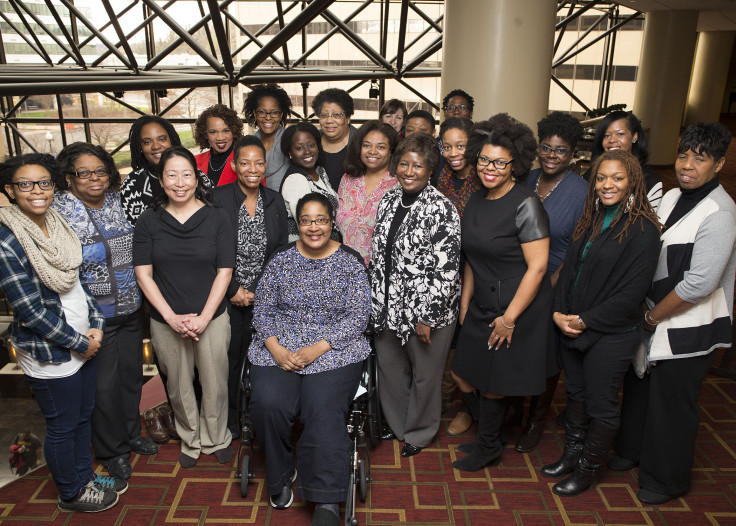When participants in the inaugural Black Women in Computing conference descended on Howard University last weekend, there was a lot to discuss. The gathered women, many of whom work high up in various areas of academia, research and industry, discussed unity. They discussed amplifying each other’s voices. They checked in with each other in the aftermath of what was a turbulent election (no matter your politics), and they talked about the importance of health and wellbeing.
But there was another theme to the weekend too — a more existential one, Dr. Raquell Holmes (who spoke at the conference) told Technical.ly in an interview on Sunday.
That is: What does it mean to hold a Black Women in Computing conference? What does it mean for this group of individuals to define their community in such precise terms, eschewing broader labels like “women in tech” or “diversity in tech”?
In a country with as complex a history as ours, specifically calling out race can be heavy. It’s a theme we touched on in this profile of local founder Brian Williams and his musings on having a “conspicuously Black” company. But for Holmes, who firmly believes that “all of us have to get better at talking about race,” the narrow definition has powerful potential.
For one, whether or not you’d like to admit it or think it should be the case, Black women working in STEM have very specific experiences, many of which are not shared by other groups of “women” or “minorities.” Thus the conference can give these women a chance to have conversations about the precise issues of race and class and gender that are real and important and powerful in their lives.
This sentiment was echoed by the cofounder of the The Research Coalition for Black Women & Girls in Computing (the organization that put on the conference), Dr. Jakita Owensby Thomas, in an interview with Ebony Magazine:
“The primary benefit [of membership] is camaraderie,” she said. “Black women who are in computing fields on their job, in graduate school, and undergrad are often the only ones within that space or they are one of very few. It can feel lonely. The organization is a way to plug into the community to get mentorship, leadership training, and make connections to find out about opportunities that may exist.”
But beyond the value of camaraderie, there’s another benefit Holmes sees. This one has to do with not only understanding that Black women in computing have a unique experience, but also looking at what that experience is and, down the road, how it can be shared with or communicated to other groups.
“There is little research on black women in computing (BWIC) and the experience of black women is not the same as other women,” Holmes told Technical.ly. “And rather than being studied by others (a sketchy history in America), or waiting for someone else to do it, we can create research partnerships across technical areas to develop studies for us by us. There’s qualitative research to be done that gives expression to and understanding of the environments and strategies that lead to inclusion and success.”
This being the first Black Women in Computing conference, though, here’s another argument to be made that not even its attendees know the full significance just yet. “What does the conference mean?” Holmes mused, “maybe we don’t know yet.”
But that’s OK — it will be what it needs to be. And that’s more than enough for now.
Join the conversation!
Find news, events, jobs and people who share your interests on Technical.ly's open community Slack

DC daily roundup: Esports at Maryland rec center; High schoolers' brain algorithm; Power data centers with coal?

DC daily roundup: Tyto Athene's cross-DMV deal; Spirit owner sells to Accenture; meet 2GI's new cohort

DC daily roundup: $10M to streamline govt. contracting; life sciences might dethrone software; Acadia's new $50M

